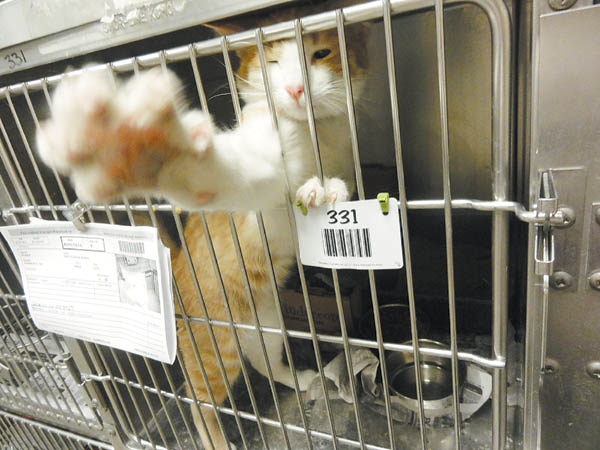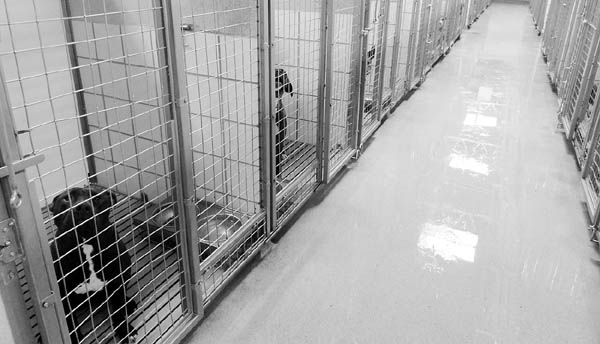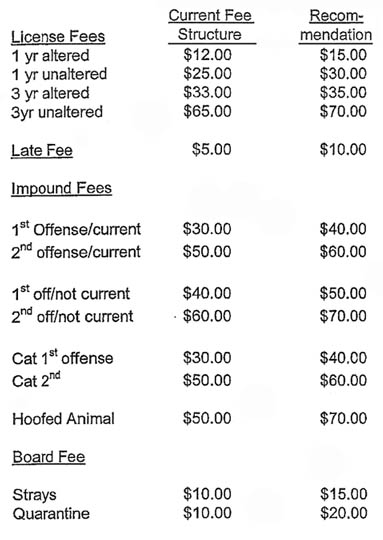 This homeless cat recently wound up in the Humane Society's kennels on the Westside at 610 Abbott Lane. Only 37 percent of the cats that come in can be saved, according to Humane Society figures. Erica Meyer photo
|
The hikes will allow the Westside-based nonprofit to avert cutting services to the public or needing to seek a better contract with the city, according to comments by HSPPR President/CEO Jan McHugh-Smith and field services director Joe Stafford at the council meeting.
Mayor Lionel Rivera endorsed the HSPPR plan, because it means those most responsible for the higher costs - ineffective pet owners - would be footing the bill instead of the community at large. “It's user pay,” he said. “That's how it should be.”
The HSPPR goal is to have the new fees take effect as soon as possible, and city staff is working with the nonprofit agency to accomplish that. According to City Procurement Services manager Curt DeCapite, the ordinance revision will come before council as a formal item Jan. 25.
The Humane Society lost money last year, and will probably still be in the red this year, McHugh and Stafford told council, even though the proposed fee hikes are estimated to bring in an additional $100,000. But the agency is also hopeful about a contract amendment - another part of its city request - that would give HSPPR more of a financial incentive to build up its licensing revenue.
Identical fee hikes for unincorporated El Paso County have already been approved and will take effect at the same time as the city's, explained HSPPR spokesperson Erica Meyer after the meeting. Because the unincorporated county has fewer residents than the city, the earnings from that contract would be $25,500, the county estimate shows.
Responding to questions from council, McHugh said the new fees would be a little higher than in Pueblo (where HSPPR also provides service), but less than comparable fees elsewhere along the Front Range.
 A line of kennels inside the Humane Society of the Pikes Peak Region houses dogs that are hoping to find homes. Erica Meyer photo
|
In a document to the city describing public financial implications, McHugh reported that 4.5 of the current 17 animal control positions would have to be eliminated if the increased user fees were not allowed, resulting in the loss of such field services as nuisance noise calls, signed complaints, bite reporting and dogs at large.
McHugh told council she hopes the higher fees will “increase the responsibility on pet owners so they don't keep having their animals coming in.” She described the amount coming in now as “horrendous for a community this size.” The agency has been overwhelmed as a result, forcing 9,500 euthanizations annually, she said.
Meyer added that the HSPPR receives “upwards of 23,000 animals a year,” with daily averages of 40 to 70. “And the numbers are constantly increasing.”
She provided the following statistics for the year 2009 (2010 figures are not yet finalized):
 A table shows the current user fees and what they will increase to after Colorado Springs and El Paso County approve them, as expected. Courtesy of Humane Society/City of Colorado Springs
|
Westside Pioneer article